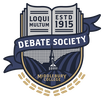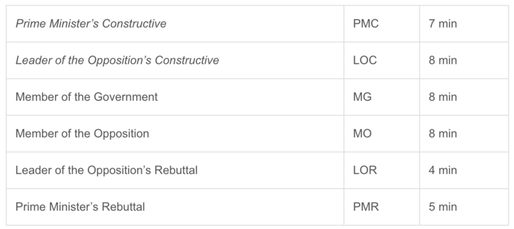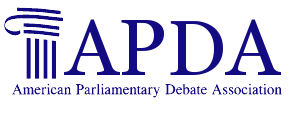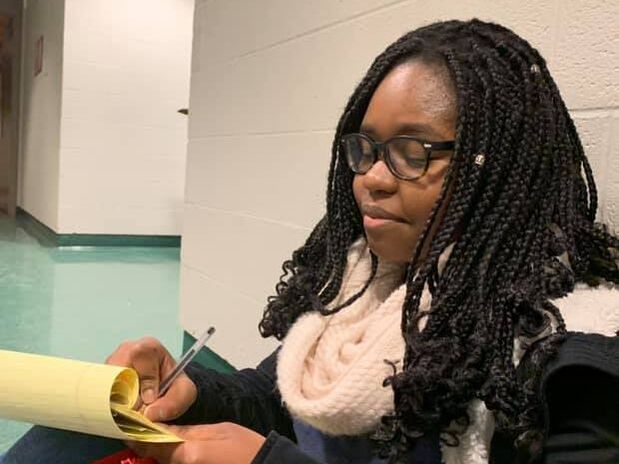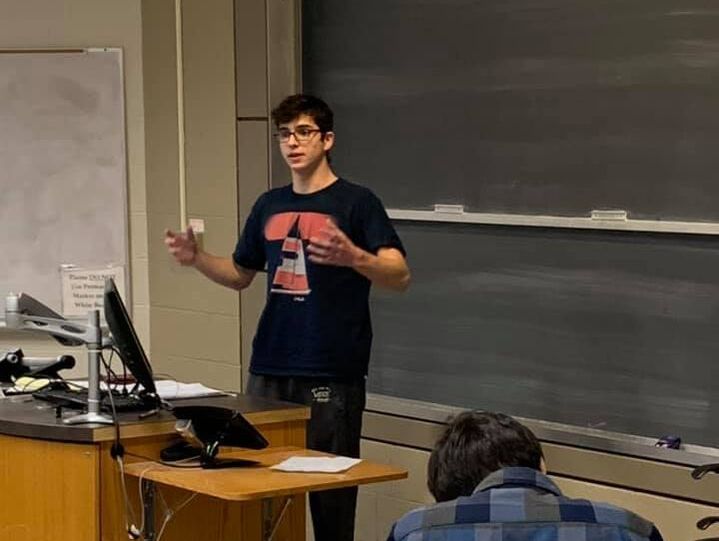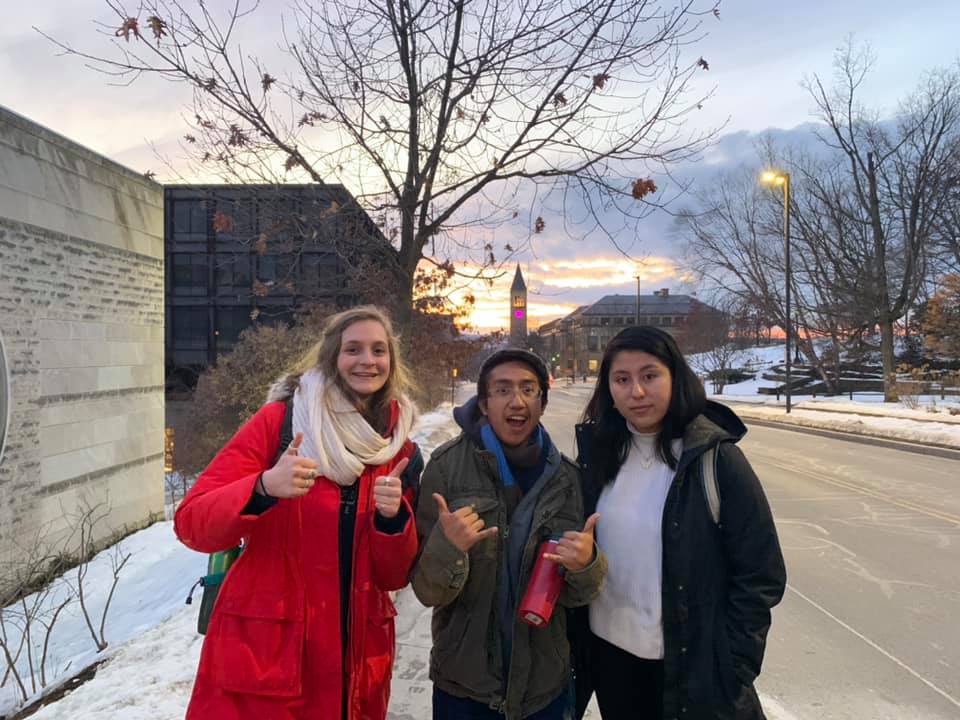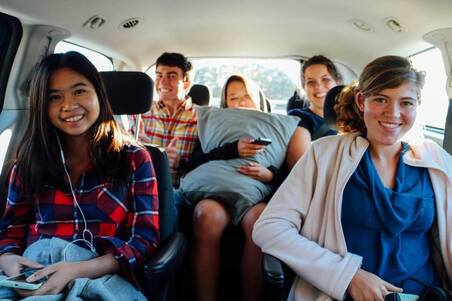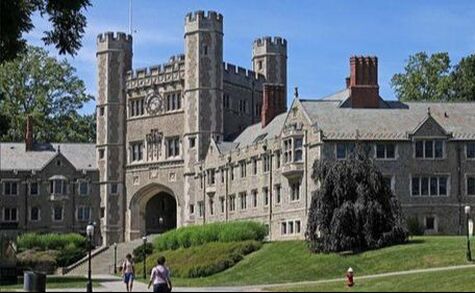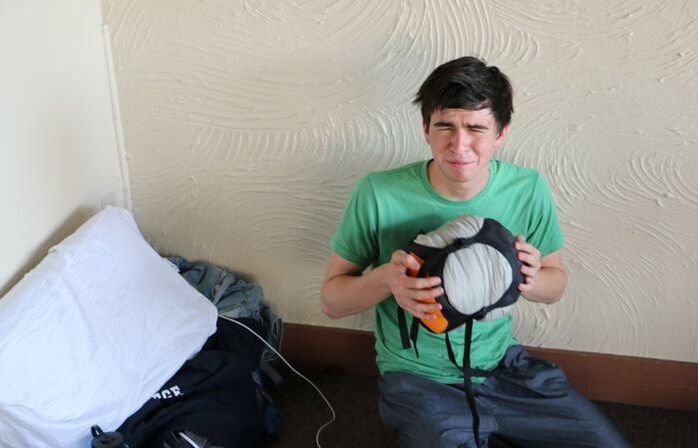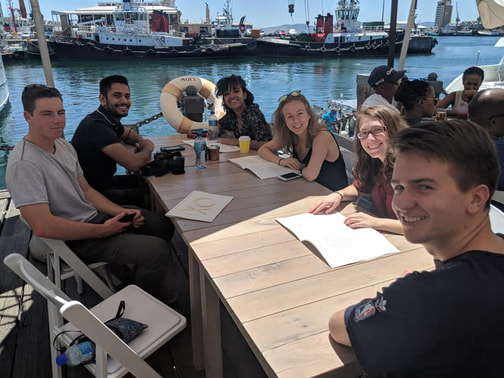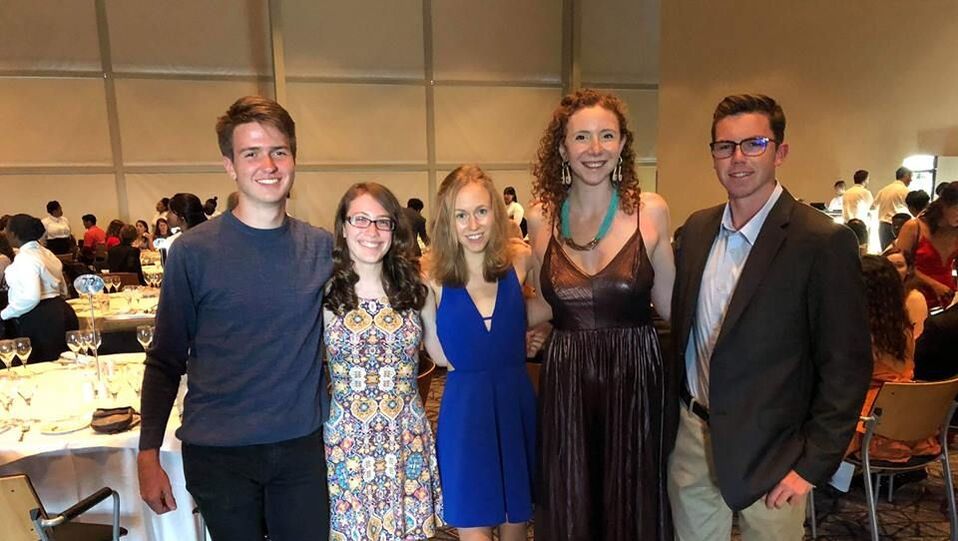What does college debate look like? What is a tournament like? You can find the answers to these questions and more below!
British Parliamentary (BP) Style
|
Many of the domestic and almost all of the international tournaments that we attend are in the British Parliamentary style. It is often called Worlds Style, because it is the format used at the World Championships. Nearby schools (such as Brandeis, Yale and the University of Vermont) host BP tournaments, so everyone will have the opportunity to debate in this style, even if they do not debate internationally. Middlebury's annual tournament is typically held in the BP style.
In British Parliamentary, four teams (two debaters per team) compete against each other in each debate. The motion (the topic) of each debate round is announced right before it begins, and teams have 15 minutes to prepare their arguments. Two teams represent the "Government" side and two teams represent the "Opposition" side, but each team (and each speaker within the team) has their own role. Each speech is 7 minutes long and each debater gives one speech. Learn more about BP format and structure here. |
This video provides a helpful picture of how a typical BP round works.
One of the best ways to learn is by watching BP debate rounds online (YouTube is a great resource).
|
American Parliamentary Debate Association (APDA)
|
Other tournaments that we attend are in the APDA circuit. The league is mainly composed of east coast schools such as Brown, Dartmouth, Harvard, Princeton, Yale, Brandeis, Tufts and Georgetown. The University of Chicago, U.C. Berkeley, Stanford, and other central and west coast schools are also members of the league.
APDA is an entirely student-run debate league. Tournaments are hosted by different schools almost every weekend. The league is run by an elected board and decisions are made at APDA meetings, which take place at a few major tournaments every year. You can find more information about APDA here. On APDA, all rounds involve two teams, each with two members. One team speaks first and proposes a case as the Government (Gov) team, which they have typically written/prepared before the tournament. Gov's opponents are called the Opposition (Opp) team. Gov’s two speakers are the Prime Minister (PM) and the Member of Government (MG); Opp’s two speakers are the Leader of the Opposition (LO) and the Member of the Opposition (MO). The PM and the LO each give two speeches, one constructive and one rebuttal, per round. The MG and the MO and each give one constructive speech per round. Constructive speeches usually go through the list of arguments presented by both sides (the “flow”) and offer responses. Rebuttal speeches are used to summarize and frame the round. The speaking order and timing is as follows: |
The basic structure and rules of the American Parliamentary debating style.
An explanation of the note-taking method of flowing, for use in an American Parliamentary style debate round.
One of the best ways to learn is by watching APDA debate rounds online (YouTube is a great resource).
|
How to Write a Case (for APDA Tournaments)
|
1. THINK BROADLY
Brainstorm and think of some broad subjects that you are interested in or familiar with. It's easier to write about something that you already know about or want to learn more about. Following this step would be like saying, “okay I want to write a case about history or religion or art etc.” Remember the goal is to pick a subject that excites you or that you want to explore in order to ease you into a more fun writing process, especially since you will potentially be speaking about said subject for an entire round and hopefully tournaments to come. 2. REFINE YOUR IDEA Try to pick up ideas from your classes that might make interesting debates. You can also find some sample debate topics and motions with these resources:
Once you have an idea of the area you want to focus in, start researching it. Learn some basic background information. APDA debate focuses on argumentation and logic instead of just finding facts, so don't look for statistics or quotes. Just learn the basics that will help you create informed arguments. While BP Tournaments do not require prewritten cases, we encourage team members to prepare matter files (info sheets about important debate topics) that could be helpful during prep time. |
Learn from former Middlebury Coach Matt Summers about how to write your first case.
|
Tournament Experience
WHAT TO EXPECT AT A TOURNAMENT
Your first tournament will be an exhilarating, yet nerve-racking, experience. However, this tournament is where you will learn the most as a new debater. To ease your nerves, we have included a few tips and expectations for your first tournament.
Your first tournament will be an exhilarating, yet nerve-racking, experience. However, this tournament is where you will learn the most as a new debater. To ease your nerves, we have included a few tips and expectations for your first tournament.
|
GENERAL TOURNAMENT SCHEDULE
We usually leave Middlebury around 11 am on Friday, but this timing varies depending on the start time of tournaments and how far away they are. Our departure time should be posted on the registration form, and confirmed through an email to everyone who is attending. We generally meet at ADK, the turnaround area near Ross Dining Hall and outside of the Adirondack House. We typically return to Middlebury either Saturday night (APDA) or Sunday afternoon (BP). A typical tournament schedule: (APDA) Friday 2:30PM – Team & Judge Registration Opens 3:30PM – Registration Closes 3:30PM – Tournament Briefing 4:00PM – Round 1 5:30PM – Dinner 6:30PM – Round 2 8:30PM – Round 3 10:30PM – Housing Saturday 8:00AM – Breakfast 9:00AM – Round 4 11:00AM – Round 5 12:30PM – Lunch 1:30PM – Partial/Octofinals 3:30PM – Quarterfinals/ Novice Semifinals 5:30PM – Semifinals/ Novice Finals 7:30PM – Finals |
There's always time to do homework, hang out and make new friends between rounds!
|
|
HOW WE GET TO TOURNAMENTS
We usually rent 7-passenger vans from Middlebury College and each tournament should have at least two licensed drivers. You must have a college license to drive the school van. You can obtain your college license by attending one of the 90 minute training sessions listed here. People who have a college license receive priority when registering for tournaments, so it's a good idea to get one as soon as possible. Some people say our van ride road-trips every weekend are one of their favorite parts of debate. When we compete at international tournaments, we usually fly from Burlington. This includes Oxford and Cambridge, the World Championships, and title tournaments such as the Pan American Championships in Central/South America. We also fly for domestic tournaments that are outside of the East Coast area. |
HOUSING
We will typically stay in the dorms with the debaters from the host school. This is a great way to meet people and get a taste of campus life at colleges around the country. Some hosts have couches or futons, but come prepared to sleep on the floor in a sleeping bag. You will usually be assigned a host that identifies as the same gender, and should be housed with at least one other Middlebury debater. If you ever feel uncomfortable in your housing situation, do not hesitate to contact another Middlebury debater or one of the equity officers at the tournament. |
|
FOOD
Most tournaments serve pizza for dinner on Friday night and bagels for breakfast on Saturday morning. If you have a dietary restriction that means you can’t eat what is provided, the tournament is required to provide you with alternative food options. There is more information about the dining policy on our Reimbursements page. We generally have a team dinner on the way home from a tournament, at restaurant of our choosing. |
WHAT TO PACK
|
HOW TO ASK YOUR PROFESSOR TO MISS CLASS
Most professors consider academic debate to be a legitimate reason to miss class. It is best to talk to them at least a week beforehand. Talking to them in person during office hours or after class is a good idea, and then send a follow-up email referencing your conversation so they remember that they gave you permission. Ask a friend to take notes for you. It’s best to not make your absence more work for your professor by asking them for notes.
Your professor may tell you that you can’t make up an assignment if you miss class. They may also tell you that they will dock your grade for absences. This is very rare, but it is possible, especially with language classes. That’s why you should be polite and talk to your professor as soon as possible.
Make sure you know when your big projects and tests are so that you can plan which tournaments you can attend.
Most professors consider academic debate to be a legitimate reason to miss class. It is best to talk to them at least a week beforehand. Talking to them in person during office hours or after class is a good idea, and then send a follow-up email referencing your conversation so they remember that they gave you permission. Ask a friend to take notes for you. It’s best to not make your absence more work for your professor by asking them for notes.
Your professor may tell you that you can’t make up an assignment if you miss class. They may also tell you that they will dock your grade for absences. This is very rare, but it is possible, especially with language classes. That’s why you should be polite and talk to your professor as soon as possible.
Make sure you know when your big projects and tests are so that you can plan which tournaments you can attend.
Contact us: [email protected]
